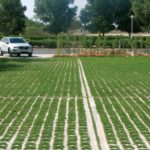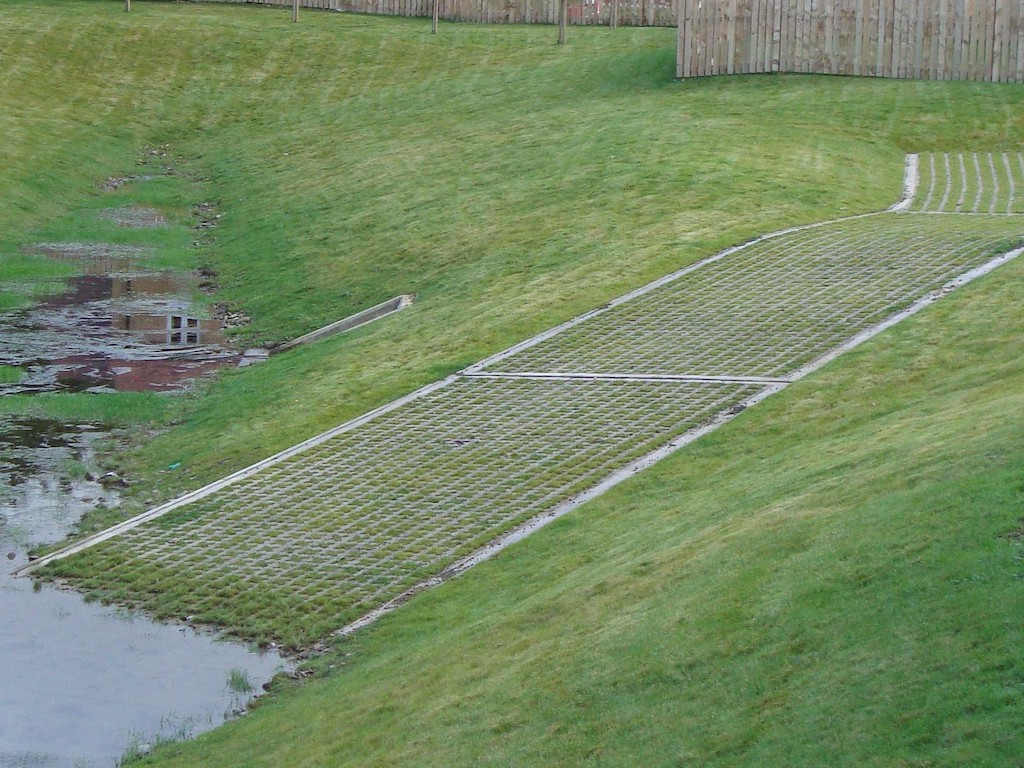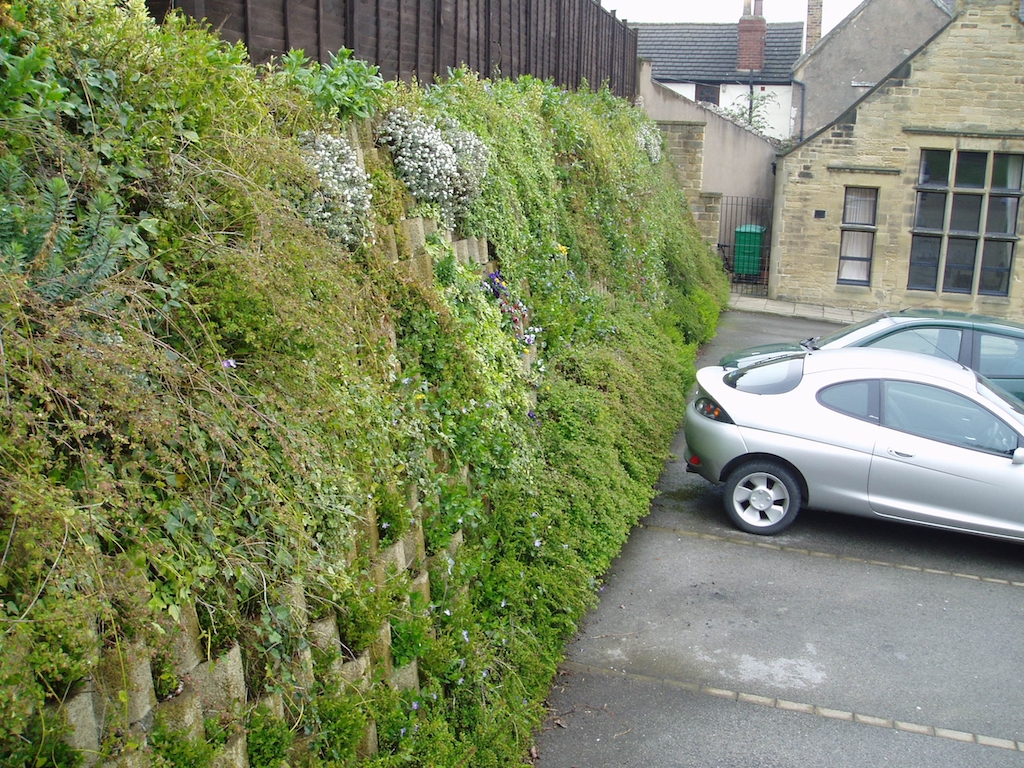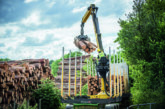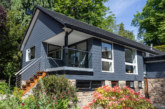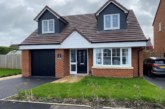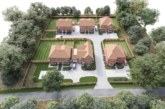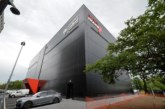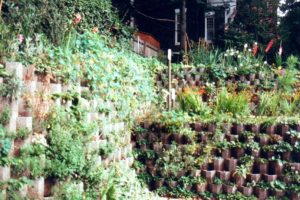 One Yorkshire firm realised the sustainable and environmental benefits of grass paving as an alternative to hard landscaping some fifty years ago.
One Yorkshire firm realised the sustainable and environmental benefits of grass paving as an alternative to hard landscaping some fifty years ago.
The story began in the 1960s, with Jack Blackburn – a local authority architect from Huddersfield with a passion for invention. Committed to developing products which improved the environment, he set his focus to external paving. Soon, the product he imagined came to be known as Grasscrete – a name which developed into the generic name for grass paving. After successful trials, Grass Concrete Limited was established as a comapny based in Wakefield in August 1970.
Introducing new products into construction can be challenging, especially when the product itself challenges traditional convention. Whether it was in spite of, or because of the 1970s pre-occupation with system building, Grasscrete was able to quickly establish its identity as a system that broke the mould, by synchronising engineering requirements and environmental awareness.
Leading the company at the time was Rodney Walker, a Wakefield-based concrete engineer with enough savvy to see the wide-ranging potential that Grasscrete carried. Early success came with a number of largescale water projects alongside traffic applications from car parks to access road, enabling the new product to appeal to both engineers and architects.
Grasscrete was seen to improve and enhance the environment, providing resilient and robust ground engineering. The company’s experts were the first to extol the belief that it was a more sustainable way to build.
“Ahead of their time, the company championed ‘sustainability’ earlier than most and it became key to Grasscrete’s 50-year success,” claims current Managing Director of Grass Concrete, Bob Howden.
New products were soon to follow, including a precast Grassblock range. It was designed to go head-to-head with other pre-cast blocks available at that time and benefitted from the rigour of the company’s benchmarking philosophy, which always strives to offer something better. Housebuilders can find precast Grassblock from builders’ merchants nationally whereas Grasscrete is almost exclusively quoted as a supply and lay service.
Changing mindsets
Over the past 50 years the outlook on the environment within the industry has changed. The Grasscrete concept has always been thought-provoking and has helped shift mindsets towards a more enlightened approach to greening up hard landscaping in and around houses.
Expansion of housebuilding comes with increased pressure on sewer and drainage infrastructure and the attributes of permeable paving for SuDS schemes are not lost on housebuilders. In fact, the firm claims its Storm Water Management guide, which they first produced back in 1985, helped start the SuDS conversation.
More and more housing developments are embracing Grasscrete and Grassblock in areas other than just flood alleviation ponds and the company is reporting demand for uses ranging from emergency access roads to domestic driveways and parking areas.
The heavy-duty nature of Grasscrete remains critical to its success and longevity. Grasscrete has become the generic term for grass paving and is very often the specified product of choice, working in some of the toughest environments – flood, water, and highways projects.
For housing developments, regular and heavy weight trafficking can include waste and recycling vehicles along with regular vehicle traffic and necessitates a strong ground structure which plastic systems cannot withstand.
Bob Howden adds: “With fifty years of industry experience, our policy is to guide clients to the system that is most appropriate to their need. We achieve sustainability through purpose-fit products.”
Environmental leadership
The company’s environmental leadership has always been fundamental to the business and new environmentally friendly products soon came along.
Grass Concrete became the exclusive British licensee for the Betoconcept range of earth retaining walls and noise barriers in 1992. This meant that the French vertical landscaping product range was manufactured in Britain offering retaining walls with integrated planting soil pockets, perfect where garden space is a premium.
For housebuilders Betoconcept brings an added environmental alternative to retaining walls – these dull and uninspiring structures can now be replaced by attractive vertical planting areas.
The company’s environmental products continue to evolve. Recently adding a Grassroof product, a lightweight lay-and-leave, no-soil system, designed for sedum or succulent planting on flat rooftops.
If a perspective of Grasscrete in 1970s was that of a niche product in a challenging marketplace, then the viewpoint today is wholly different. Grass Concrete’s products sit within the mainstream thinking of local authorities, housebuilders and specifiers alike, as they are able to facilitate the process of urbanisation by offering key levels of environmental mitigation, for a win-win solution.

